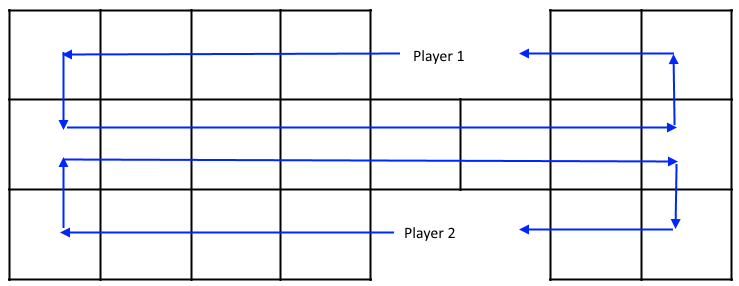Royal Game of Ur Rules
How to Play Royal Game of Ur
Objective
Royal Game of Ur (also known as Game of Twenty Squares) is an ancient two-player game which according to some theory is a predecessor of Backgammon.
The objective of the game is to be the first player to bear all pieces off the board.
Gameplay
Royal Game of Ur is played on a board which has 20 squares in 3 rows.
Top and bottom rows are identical and have 6 squares each which are grouped into 4 and 2 squares.
Top and bottom rows belong to one player each.
Top and bottom rows are connected by the middle row which has 8 squares.
Each player starts with 7 pieces which are placed outside the board at the beginning.
The game is played with 4 special pyramid-shaped dice. Each die has 2 of its 4 corners marked leaving other 2 corners unmarked.
Player can move his/her pieces according to the number of marked corners facing up.
Rules for moving pieces
Pieces are moved according to the rules below
- In each turn one piece can be moved according to the rolled value (count of marked corners facing up). A piece can enter the board for any roll with count of 1 or more.
-
The players move along the path as shown in the diagram below

- One square can only have one piece.
- Player can not move his/her piece to a square already occupied by his/her own piece.
- Player can move his/her piece to a square occupied by opponent's piece which cuts opponent's piece out of the board.
- There are colored rosettes in the board (6 in total and 3 in each player's path) which are considered safe locations. Piece on safe location in middle row can not be cut by opponent's piece. Player's piece is also safe when it is in his/her own row.
- Whenever a player's piece lands on a safe location, he/she gets one extra roll.
- Pawns can be borne off the board by exact roll of dice required to move it to the last sqaure plus one.
- If a move is possible then player must make the move.
- If no move is possible, then player simply forfeits his/her turn.
The first player to bear all seven pieces off the board wins the game.